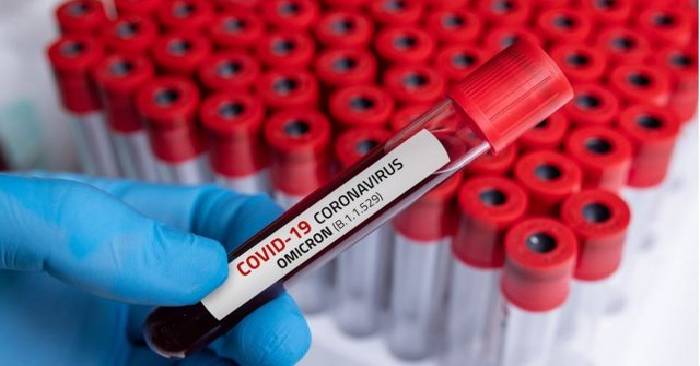WHO warns that Omicron is spreading faster than Delta variant, causing infections in vaccinated people

GENEVA – The World Health Organization (WHO) has issued a warning that the Omicron variant of the coronavirus is spreading faster than the Delta variant and is infecting people who have already been vaccinated or who have recovered from the COVID-19 disease.
Soumya Swaminathan, WHO chief scientist, stated that based on preliminary evidence, it would be “unwise” to conclude that Omicron was a milder variant than previous ones. “… as the numbers rise, all health-care systems will be put under strain,” Soumya Swaminathan told journalists in Geneva.
According to her, the variant is successfully evading some immune responses, implying that the booster programmes being implemented in many countries should target people with weakened immune systems.
“There is now consistent evidence that Omicron is spreading significantly faster than Delta,” WHO Director-General Tedros Adhanom Ghebreyesus said at the press conference. “And it is more likely that people who have been vaccinated or recovered from COVID-19 will be infected or re-infected,” Tedros added.
Their remarks echoed the findings of the Imperial College London study, which revealed last week that the risk of reinfection was more than five times higher and showed no signs of being milder than Delta.
Other types of immunity vaccinations, according to WHO officials, may prevent infection and disease. While some actions have weakened antibody defences, there is hope that T-cells, the second pillar of an immune response, can prevent severe disease by attacking infected human cells.
“Although we are seeing a reduction in neutralisation antibodies, almost all preliminary analysis shows T-cell mediated immunity remains intact, which is what we really require,” WHO expert Abdi Mahamud added.
However, highlighting how little is known about how to deal with the new variant, which was discovered only last month, Swaminathan added, “Of course, there is a challenge, many of the monoclonals will not work with Omicron.”
She did not provide any specifics when referring to treatments that mimic natural antibodies in fighting infections. Some pharmaceutical companies have proposed the same thing.
In the short term, Tedros warned that holiday celebrations would lead to “increased cases, overburdened health systems, and more deaths” in many areas, and urged people to postpone gatherings.
“A cancelled event is preferable to a cancelled life,” he said. However, the WHO team gave some hope to a weary world facing the new wave by predicting that the pandemic, which had already killed more than 5.6 million people worldwide, would end in 2022.
It pointed to the development of second- and third-generation vaccines, as well as the advancement of antimicrobial treatments and other innovations.
“(We) hope to reduce this disease to a relatively mild disease that is easily prevented and treated,” Mike Ryan, the WHO’s top emergency expert, said at the briefing. “If we can keep virus transmission to a minimum, we can put an end to the pandemic.”
Tedros, on the other hand, stated that China, where the SARS-CoV-2 coronavirus was first detected at the end of 2019, must be forthcoming with data and information related to its origin in order to aid the response in the future.
“We need to keep going until we find out what happened, and we need to push harder because we need to learn from what happened this time to (do) better in the future,” Tedros said.






